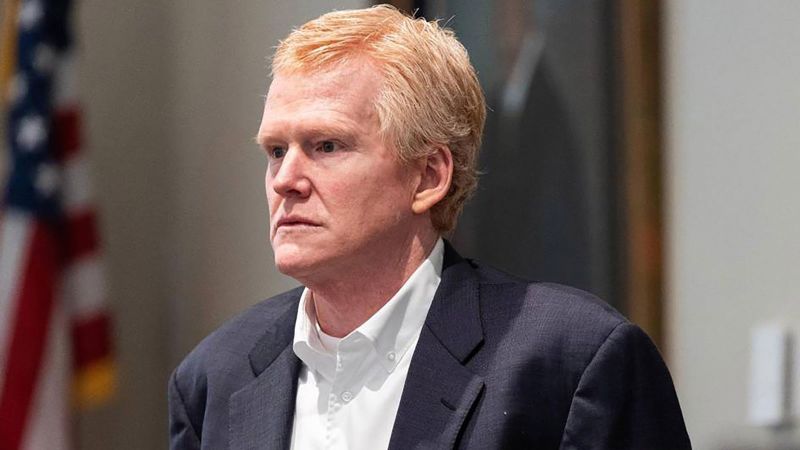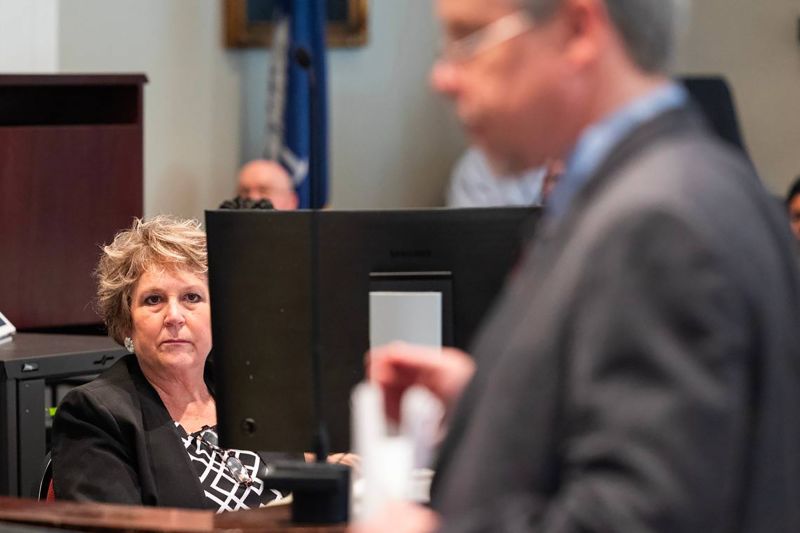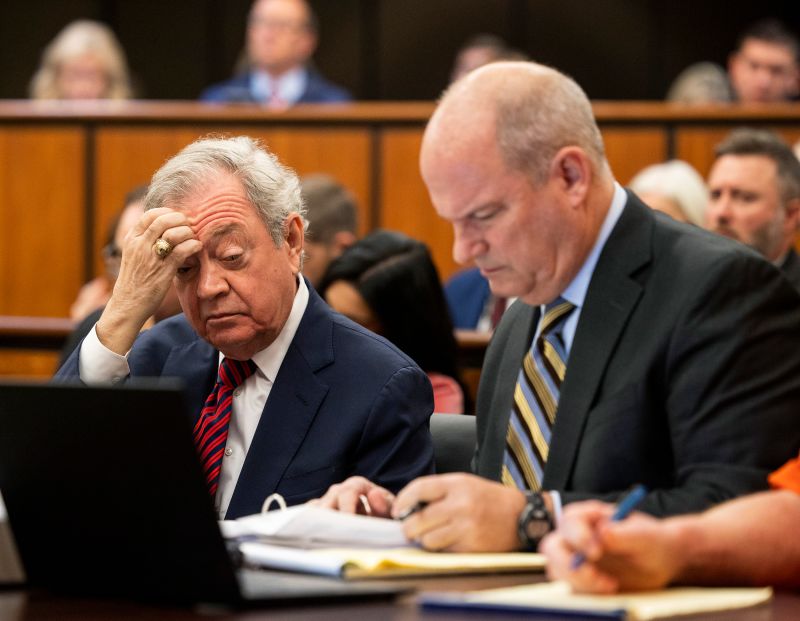
The Legal Battle of Alex Murdaugh: Allegations of Jury Tampering

The case of Alex Murdaugh's quest for a new murder trial has sparked controversy and raised questions about the integrity of the judicial process. Allegations of jury tampering by Colleton County Clerk of Court Rebecca 'Becky' Hill have cast a shadow over the original murder trial and prompted an evidentiary hearing to determine the validity of these claims. The high-stakes legal battle has captured public attention and drawn scrutiny from legal experts and the media. Here's an in-depth look at the unfolding drama surrounding Alex Murdaugh's pursuit of justice.
The Allegations
The legal saga surrounding Alex Murdaugh's bid for a new murder trial has taken a dramatic turn with explosive allegations of jury tampering. Murdaugh and his legal team have accused Colleton County Clerk of Court Rebecca 'Becky' Hill of engaging in misconduct that tainted the original murder trial. They contend that Hill inappropriately communicated with jurors, exerted pressure to hasten deliberations, and provided misleading information to the trial judge.
Alex Murdaugh stands next to the witness booth during a break in his murder trial at the Colleton County Courthouse on Feb. 23, 2023, in Walterboro, South Carolina.
According to Murdaugh's defense team, Hill's alleged actions were motivated by a desire to secure a book deal and media appearances, raising serious concerns about the fairness and impartiality of the trial. The allegations have sparked a contentious legal battle, pitting Murdaugh against the judicial system and casting doubt on the integrity of the original verdict.
Alex Murdaugh enters the courtroom before closing arguments begin in his trial for murder at the Colleton County Courthouse on Wednesday, March 1, 2023. Joshua Boucher/The State/Pool
Hill has vehemently denied the accusations, filing a detailed affidavit to refute the specific claims made against her. The South Carolina Attorney General's office, which prosecuted Murdaugh, has also urged the courts to dismiss the motion for a new trial. The conflicting narratives and high-stakes nature of the case have set the stage for a pivotal evidentiary hearing to determine the truth behind the allegations of jury tampering.
Colleton County Clerk of Court Rebecca Hill listens as prosecutor Creighton Waters makes closing arguments in Alex Murdaugh's murder trial at the Colleton County Courthouse on March 1, 2023, in Walterboro, South Carolina.
The Evidentiary Hearing
The anticipated evidentiary hearing to address the allegations of jury tampering is poised to be a critical juncture in the legal battle. Scheduled to feature testimony from 11 jurors from the original murder trial and Hill herself, the hearing holds the promise of shedding light on the contentious claims and unraveling the complexities of the case.
Alex Murdaugh's defense attorneys Dick Harpootlian, left, and Jim Griffin before a hearing on January 16 at the Richland County Judicial Center in Columbia.
With the spotlight on the testimonies of jurors and the embattled court clerk, the hearing is expected to be a closely watched affair, drawing attention from legal experts, the media, and the public. The high-stakes nature of the proceedings and the potential implications for the integrity of the judicial process have elevated the significance of the evidentiary hearing, setting the stage for a riveting legal showdown.
The hearing's outcome could have far-reaching consequences, impacting not only Murdaugh's pursuit of justice but also the public's confidence in the legal system. As the legal drama unfolds in the courtroom, the eyes of the nation are fixed on the proceedings, awaiting a resolution to the gripping saga of alleged jury tampering and the pursuit of truth and justice.
Implications and Consequences
The intense legal battle surrounding the allegations of jury tampering has raised profound questions about the integrity of the judicial process and the pursuit of justice. The outcome of the evidentiary hearing and the resolution of the allegations will have significant ramifications, shaping the public's perception of the legal system and its commitment to fairness and transparency.
The implications of the case extend beyond the individual pursuit of a new trial, touching on broader concerns about the trustworthiness of jury deliberations, the role of court officials, and the sanctity of the judicial process. The resolution of the allegations will serve as a litmus test for the credibility and fairness of the legal system, carrying implications that resonate far beyond the confines of the courtroom.
As the legal battle unfolds, the quest for truth and justice stands at the forefront, driving the pursuit of transparency and accountability within the judicial system. The outcome of the evidentiary hearing holds the promise of delivering clarity and closure in a case that has captivated the public's attention and ignited fervent debates about the fundamental principles of justice and the rule of law.














